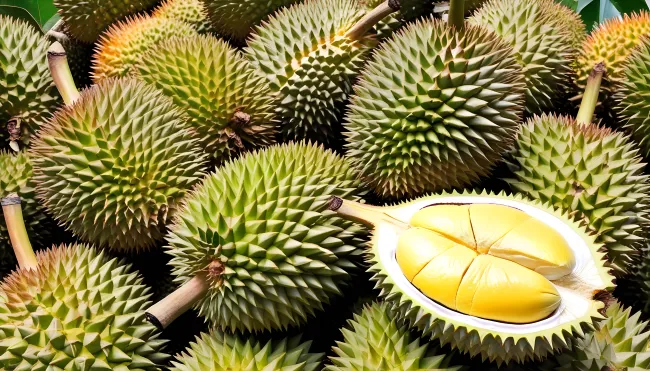Tempoyak: Durian Fruit Fermentation, Favorite Cuisine of the Dayak and Malay People in Kalimantan

Tempoyak, paste made from durian. Borneo Culinary. Image by Mering
What kind of delicacy is this? For those familiar with and
fond of durian, a spiky fruit with soft, tender flesh within its pods, it
serves as the primary ingredient in making tempoyak.
The mention of this unique
cuisine immediately invokes thoughts of the Dayak and Malay cultures. While it
has historical roots, it has transformed into the pinnacle of culinary
excellence in Kalimantan, with its influence also extending to Sumatra.
Within Kalimantan,
tempoyak occupies a central role as an irreplaceable delicacy. It offers a
range of tempting flavors, its key ingredients being durian fruit and salt.
Only ripe durian fruit is used as the main component. Through a fermentation
process, tempoyak emerges as a symbol of the refined flavors of both Dayak and
Malay cuisines.
Tempoyak is highly favored as a distinctive dish among the
Kalimantan locals. It can be incorporated into dishes with fish and meat,
either through steaming or dry-frying, combined with small fish and dried
shrimp. For long-term preservation, it can be stored in jars.

Durian. Image by Mering
If you ever visit Kalimantan, don't forget to savor the tempoyak
cuisine. Tempoyak undoubtedly stimulates your appetite; you might even find
yourself finishing two plates of rice.
In fact, some even go to the extreme of covering their noses
upon catching a whiff of durian's scent. However, over time, they end up
enjoying durian more than anyone else.
The same goes for tempoyak. Initially, many people do not like tempoyak, especially those from outside Kalimantan.
However, gradually they develop a liking for tempoyak, the signature cuisine of the Dayak and Malay cultures in Kalimantan.*)






